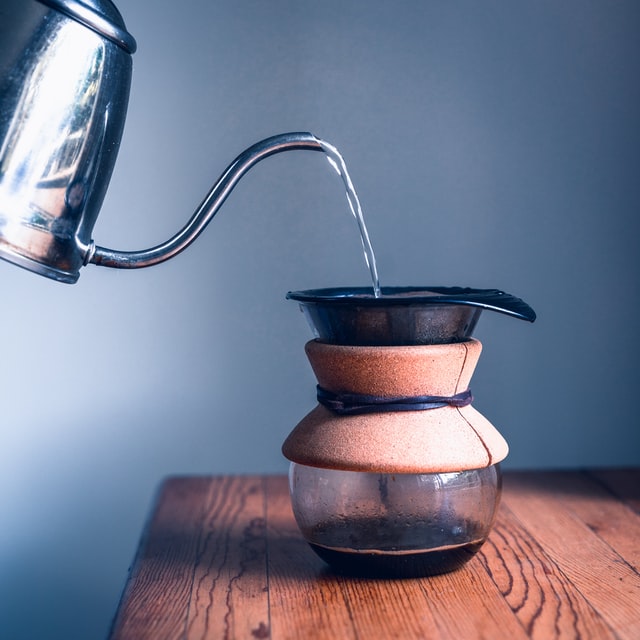
Coffee filters: types, advantages, and more
Share
Coffee filters are a very under-appreciated part of coffee brewing. The type of filter you use could have as much relevance as the brewing method you choose, for example.
In this article, let’s talk about the different types of coffee filters there are and what advantages (or disadvantages) each of these have on the overall taste of our coffee.
Types of filters
Paper filters
The most widely used are paper filters. Paper is disposable, which is convenient, and it is also relatively cheap to make.
Paper filters are mainly used for pour-over brewing methods, because you don’t need a lot of water pressure to brew coffee: too much water pressure would prove too much for paper to handle.
Paper is very absorbent, soaking up most of the oils found in coffee while letting the water through. There’s one good side to this as well as a bad one. The good is that some of these oils are proven to raise cholesterol, making coffee brewed using paper filters better four your health. The bad is that most of these oils are responsible for taste and aroma, so the coffee’s flavor profile will feel lacking sometimes.
You can actually find many types of paper filters out there, but let’s see the two most important ones:
Brown filters
Brown paper is paper in its most natural form. It has been washed and dried, but no chemicals agents are used in this process, which is why brown filters still retain a lot of its natural “papery” flavor and aroma.
While they are more eco-friendly and natural, the downside is they can alter the flavor of your coffee.
White filters
There exist several different ways to bleach brown filters. Chlorine is one of the most common ones, although it’s very unhealthy for us. Chlorine is bad for your health and white paper filters do contain trace amounts of this chemical. It also has a distinct flavor.
Sodium percarbonate is another way of bleaching that’s much more natural and healthy. It’s found in cleaning products, too. While this one also has a distinct flavor and aroma (slightly stronger than chlorine-processed filters) it’s much better for your health.
Metal filters
Metal filters are basically a mesh, with varying sizes depending on the brewing method. French press filters are the best example of these.
These type of filters are not great at keeping grounds and brewed coffee apart, which is why they aren’t as popular as paper filters. However, they don’t contribute any smell or flavor— and they don’t soak up any of your coffee’s natural oils! This means a richer, tastier cup of coffee.
As a downside, the oil responsible for increasing cholesterol (cafestol) is found in higher amounts in coffee brewed using metal filters.
Cloth filters
Cloth filters aren’t as popular anymore, though they were the most used up to the 19th century. They are incredibly efficient at filtering, even better than paper filters. They don’t often contribute anything to aroma or flavor and they let through more oils than paper does.
However, many cloth filters are bleached with chlorine. They are also the most inconvenient of all because of how hard they are to clean. Alternatively, they must be washed right away after using or they’ll stain and start smelling.
